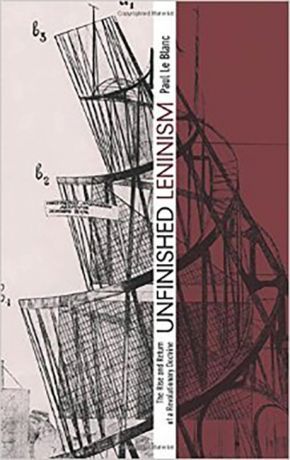Arts
You are here
Book review: Unfinished Leninism

September 2, 2015
Part of the reason why Unfinished Leninism is so compelling and addictive to read is the fact that this is a manual for militants; this is not another Verso collection of nearly unreadable theory that they pass off as the work of “Radical Thinkers“. This is instead an attempt to make Lenin’s theory relevant to the actual workers, radicals, and activists in the West, not another stab at persuading the reader that there are X number of angels dancing on the head of a pin.
Le Blanc was a union activist in that most proletariat of American cities, Pittsburgh, and while he is currently making a living as an academic, the ties to militant trade union activism can be discerned throughout the volume. That is precisely a part of Lenin’s theory itself – the notion that organic intellectuals can rise from amongst the ranks of the working class and attain political consciousness, upon which the intellectual/activists try to pass on to the more conservative elements of his/her environment.
The first half of Unfinished Leninism is, sadly, a historiography of all of the interpretations of Lenin’s thought for the past century. There is nothing necessarily wrong with this set-up, and it gives Le Blanc the opportunity to shoot down critics like Robert Service, who are more interested in character-assassination than genuine critical thought. Unfortunately, this history of histories may only be of use to the most die-hard Leninist thinkers.
The work kicks into high gear in the latter half, however, as it links elements of Leninist thought into the standpoint of 21st Century modern activism. There are great lessons to be drawn from this presentation, as I have already posted Le Blanc’s “What to do/What not to do” tactical outline for the emerging Neo-Marxist groups. Standpoint politics are particularly emphasized – it’s possible to maintain one’s own standpoint (e.g. Neo-Marxism) while still being able to interact and act with other radical groups.
Le Blanc makes the interesting point that we are not living on the verge of total revolution, a la 1917 or 1871. This period in which we live is more like 1898, when the creation of the ground-level of a revolutionary movement needs to take place. Lenin essentially created the Bolsheviks during critical junctures such as 1905 and the emergence of the Great War, and the lessons and interpretations of situational politics are just as vital today as they were a century ago.
If nothing else, Unfinished Leninism will make you run for the classics; I re-read The State and Revolution for the third time, and the fresh approach that Le Blanc provides created new viewpoints and interpretations of work with which that I was already richly familiar. Furthermore, it dragged these Leninist works out of the grave and into the present, making them dynamic handbooks rather than curios from the past.
This is shared from the blog betterreadthandead
Section:









